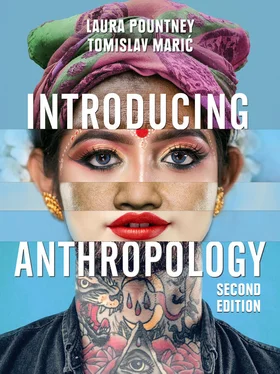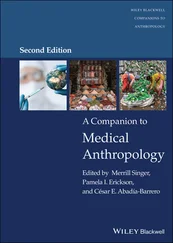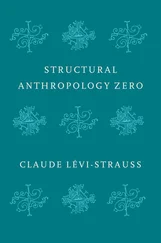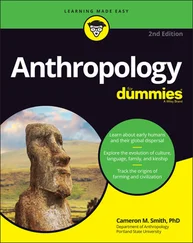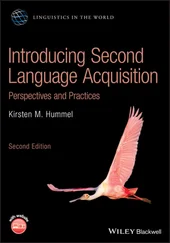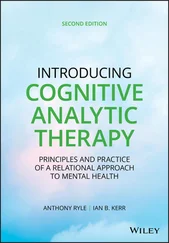This Is My Face (dir. Angélica Cabezas Pino, 2018)
In Chile, people living with HIV fear stigma and often conceal their condition and remain silent about what they are going through. This Is My Face is a documentary film that explores what happens when a range of men living with HIV open up about the illness that changed their life trajectories. It follows a creative process whereby they produce photographic portraits that represent their (often painful) memories and feelings, a process that helps them challenge years of silence, shame and misrepresentation. This is lesson in the power of collaborative storytelling.
‘Masculinity under the knife: Filipino men, trafficking, and the black organ market’ (Yea 2015)
Sallie Yea explores the meanings of commercial kidney provision amongst male providers drawn from the Manila slum of Baseco. This area of Manila has achieved notoriety as a ‘hotspot’ for organ trafficking in a global market for cheap kidneys. However, Yea feels that this framing disguises ‘how transplantation becomes a site for the enactment of social processes and relationships.’
Yea realized that in almost all documented cases, those selling their kidneys were men, thus raising interesting questions about the ways in which poor men invoke local inscriptions of Filipino masculinity through processes of bodily commodification associated with commercial kidney provision. She felt that the complex links between constructions and performances of masculinity for economically and socially marginal men and commercial organ provision may be missed in accounts only focusing on men as being exploited. Yea thus wanted to also focus on how men manoeuvred and critiqued discourses of exploitation that situated them as victims of trafficking. Such rhetoric obscures the trafficked person’s agency, casting them as powerless, duped innocents lacking the ability to manage or overcome their situations of exploitation.
There are many different ways in which kidney sales are organized in the Philippines, but the most common are those who seek out ‘kidney brokers’ or were approached by a broker in their neighbourhood. The broker charges a fee for facilitating the sale of the kidney, and, once they have been paid, connects the provider with a doctor who is willing to perform the transplant. The doctor in turn connects with prospective renal failure patients abroad.
Although the circumstances under which kidney transactions occur differ – some men seek out brokers, others have to be convinced by a recruiter – it is clear that the men who provide a kidney on Manila’s commercial organ market could be seen as trafficked in the sense that their vulnerability as economically marginal family breadwinners is the key inducement to selling a kidney and they are undoubtedly exploited in the process. It is their status as impoverished and poorly educated slum dwellers that leads to their vulnerability and subsequent exploitation in the kidney market. Yet such discussions of trafficking tell us little about the motives for providers to sell a kidney or the consequences of their involvement in this market and how this informs and in turn reconfigures their sense of masculinity. Such an undertaking requires us to look beyond broad iterations of exploitative transactions to the narratives of the providers themselves.
agencyThe capacity for human beings to make choices, create their own world, have their own ideas, etc.
Discussions of how people situated in structures of inequality manoeuvre themselves within them have often been limited solely to women. It is important therefore to attend to the ways exploitation, inequality and masculinity may be intertwined in many men’s experiences. Despite their socioeconomic status, male kidney sellers in Baseco draw on normative ideas of what it means to be a successful man in the Philippines, particularly concerning heroism and family providership. They construct themselves as masculine exemplars, or as idealized versions of masculinity.
Men’s providership in the familial space is one of the most significant signs of masculinity in the Philippines and emerged often within men’s narratives about their decisions to sell a kidney. It is estimated that around 3,000 of Baseco’s 100,000 residents have sold a kidney, with the vast majority being men. All the men interviewed cited economic considerations as the major motive for selling a kidney. However, probing more deeply into the men’s motivations the economic imperatives that informed men’s decisions were themselves embedded within the men’s familial situations and perceived responsibilities.
Supporting their families had been the primary motive for selling a kidney. It was in the men’s narration of the possibility of their children or wives having to work that they touched on the male breadwinner role most explicitly and urgently. Indeed, in many cases, it was engagement of family members in work out of necessity that ultimately motivated them to seek out brokers in order to sell a kidney. Essentially then, we can see the interplay of structure and agency represented perfectly here.
It was the structure that initially placed them in a situation where selling a kidney could even be considered as a valid option. Yet they could have gone down another desperate pathway, so selecting that option was an expression of agency (albeit limited). However, most interesting is not the agency demonstrated when they chose to sell a kidney, but the agency they demonstrated in their representation of themselves and their choice. It is the men who chose to present their actions as brave, as the result not just of economic desperation, but of heroism. It is the men who chose to show themselves as brave providers, who would do anything – make any choice – to ensure their family’s wellbeing.
STOP & THINK
How do socially marginal men attempt to contest victim discourses and simultaneously assert their own critique of their positioning within the organ market through local perception of masculinity?
Body organ trafficking
As a result of consumerism, the media, the tourist industry and global migration, people in most societies have changed the way they think about the body. The vulnerability of bodies is apparent within the context of globalization, illustrated by a rise in global organ-trafficking in which the human body is viewed as a pure commodity. It is mostly the poorest and the most disadvantaged people of the global South who sell their organs and other body tissues to affluent people in First World countries. In the UK, tens of thousands of people are on the waiting list for organ transplantation. Organ procurement is based on a voluntary system, where individuals choose to donate organs. There is more demand for the organs than supply in this process, and many people never receive the organ they need in order to survive. This has led to an increase in transplant tourism, where buyers from the UK, the USA and Europe travel to developing countries in search of affordable kidneys and other body parts.
Virtual bodies
Cyber-culture and new media technologies have expanded and extended the way the body looks and functions in the boundary between the real and virtual, as the human and the machine overlap and merge (this is explored more fully in Chapter 11). Since the internet has become a common public sphere of social interaction, networking and recreation, the constitution and definition of the body has become even more fluid in cyberspace. Interaction in the virtual world does not require physical presence. Through the mediated image of the self, humans communicate and create versions of their own bodies in this cyberspace. Virtual places, such as Second Life, free the body from its physical limitations, as it can be rewritten through an avatar or a visual representation of the user. In real life, humans encounter characteristics such as gender, race, ethnicity and age, but in the virtual world the avatars transcend biological and social status variables. The global capitalist economy has also fuelled female sexual slavery, sexual tourism and the trafficking of women and children, especially from undeveloped countries. These exploited people provide examples of how bodies are shaped through technological, political, economic and cultural traditions in the modern global world.
Читать дальше
